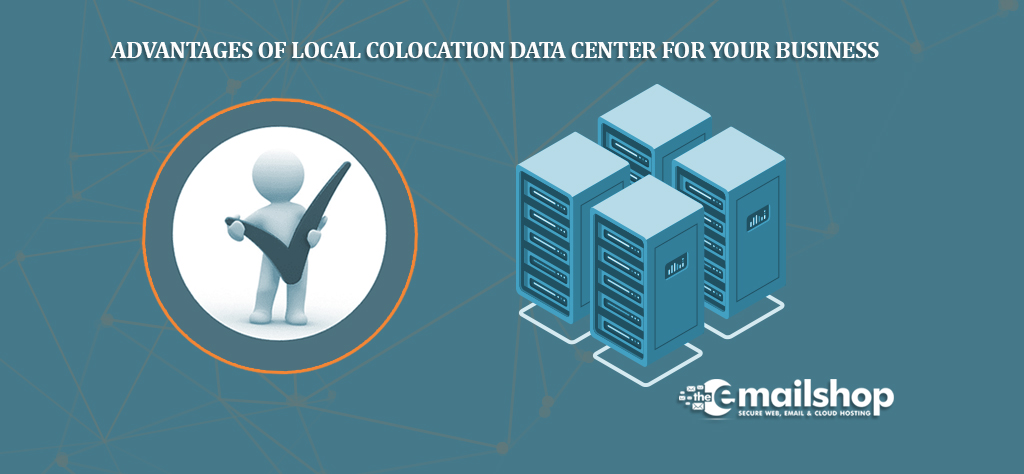When it comes to handling mission-critical data and applications, businesses now have more options available to them than they ever had before. Companies are selecting a colocation provider that helps retain peace of mind for a variety of reasons, the most popular of which are improved reliability in performance, improved business continuity, and cost savings. Location is likely to be one of the most important things to think about when choosing a colocation service provider out of the many things that need to be thought about.
When doing research on data center services, the first step that many companies take is to choose a strategic location that is suitable for their company as a whole and meets all of their requirements. Since the location of a data center may directly impact a range of other important factors in the colocation process, the most important thing to do is to choose a data center facility that is both handy and supplementary to everyday activities.
Your server will be provided with a public IP address and bandwidth when it is colocated, and you will be able to put your equipment in a cabinet that is located in a safe data center. Colocation gives you this convenience. The following is a list of the primary benefits offered by a local colocation data center.
-
Dedicated Team
Providers do everything necessary to guarantee the continued functioning of their clients’ businesses. Due to the onsite assistance available around the clock, you can be confident that your systems are being maintained by qualified IT professionals and engineers who will indicate the extent of your team. When a problem suddenly appears at an inopportune time, consumers want someone to assist them as quickly as possible. Working with a small, dedicated staff is one of the primary benefits of using a local data center. This means that you know precisely who to contact in the event that you want assistance. When the facility housing your data center is situated at a greater distance from you, it is impossible to establish the same type of connection with the employees as you are able to when you see them on a regular basis.
-
Reliability
Server cooling systems, power and communication systems that guarantee a continuous connection are provided by colocation facilities. Companies have the option of investing in the necessary apparatus and procedures to develop comparable systems in-house; but, doing so might take a large amount of capital, employees, and physical space. As a result of the various data backups that are maintained, data centers also provide increased safety in the event of a power loss.
-
Performance
Electronic equipment is fickle. It operates at its highest level in an atmosphere that is both temperature- and dust-controlled. Even the most meticulously maintained workplaces are unable to compare to the cooling and air filtration systems offered by professional data centers. The use of redundant cooling systems is one of the benefits offered by colocation. This means that the temperature of the components is monitored and controlled to ensure that air is allowed to circulate and that an appropriate temperature is maintained.
-
Colocation can be more resilient
Availability and resilience are crucial for colocation providers with hundreds of customers in a single facility; a power or cooling failure would be disastrous for the colocation provider’s company. Consequently, it is typical for colocation facilities to invest extensively in robust infrastructure, which may later benefit the provider’s customers.
-
Physical Security
The architecture of data centers protects your systems against theft and other threats that might undermine the security of your data. They offer stronger levels of physical security and implement severe data security measures, such as video surveillance, private suites, fire detection and suppression systems, and mantraps (a small space with two interlocking doors).
-
Controlled Costs
It is costly to build a data center. The costs of acquiring property, designing and constructing the building, as well as installing fiber connections and integrating physical security and critical operational systems, could be exorbitant. Maintenance and personnel expenses continue even after construction is complete. Colocation enables firms to lease existing space to save the time, expense and stress involved with constructing a facility. This reallocates resources, enabling internal IT teams to concentrate on revenue-generating projects.
A model that is outsourced also enables firms to move their cost structures from capital expenditures (CapEx) to operational costs (OpEx) for a more constant and predictable monthly payment structure. It also helps organizations manage expenses by just paying for the space, energy, and connectivity they need. Also, when businesses grow, they can take advantage of economies of scale and make better deals with suppliers.
-
Third-Party Maintenance
In several scenarios, corporations only consider server support equipment when there is a problem. Data centers build, monitor, and manage support systems and use specialized technologies and personnel to guarantee that servers are operating at peak efficiency.
-
Speed
Colocation services allow you to connect directly to many Internet service providers at a cheap cost and offer the greatest performance if your connection is interrupted or if there are too many customers.
-
Skilled staff
On-site IT specialists at data centers monitor and maintain servers. These professionals are employed to design and deploy cutting-edge infrastructures using high-performance tools.
-
Room for growth
Colocation enables you to increase your infrastructure to accommodate your business’s expansion without incurring major expenses. If your business expands, you may increase your IT infrastructure fast and with little expenditure.
-
Easy access
By opting for a local colocation facility, you can always have access to your hardware—and your data. Is your facility within driving distance of your business headquarters? Access to your hardware becomes difficult if your data center is located in the middle of nowhere. You don’t want to drive hundreds of miles when you need quick access to your servers.
-
Rapid Scalability
It is quite challenging to find the optimal dimensions for an internal data center. Building it too big results in companies paying for space that they do not need, while failing to construct it large enough results in potential capacity issues in the future. When companies work with an outsourced supplier, they are able to rent existing space, which enables them to swiftly meet capacity needs without incurring any additional costs. Companies that are unable to maintain their expansion might readily reduce their operations. This suppleness encompasses more than simply the domains of space and power. In addition to this, it enables organizations to swiftly expand their bandwidth in order to deal with unexpected increases in traffic, which may lead to issues or even system shutdowns.
-
Risk Management
Data breaches and ecological disasters are inevitable, but when your essential hardware is kept in an off-site data center, there are safeguards and redundant systems in place to ensure that business can continue as usual.
-
Better Connectivity
Your mission-critical applications should never experience any hiccups when they are hosted in a data center because of its completely redundant network connections.
-
Improved Network Security
The networks that are used by data centers are very secure, and they use the most up-to-date types of firewalls to identify and prevent any attempts by unauthorized users to access their systems.
-
Redundant Power Supply
Redundant power supplies are available in data centers. Colocation centers guarantee that they will have power even if you do not by using a number of power grids, generators, battery backup systems, and superior maintenance procedures.
-
Capability
Customers are given the option of adjusting to greater bandwidth levels in order to meet the volume of traffic that they generate without being required to make additional expenditures. Colocation allows for data peaks to be stretched out over a longer period of time and distributed across a greater number of users, which maintains the cost of bandwidth at a lower level.
-
Growth
The increase of a company’s data storage capacity to meet its requirements is made possible through colocation. The expansion of a company’s network does not require the acquisition of more hardware or the leasing of additional office space. When your business expands, your IT infrastructure may easily be expanded to match the increased demand with no additional capital outlay.
-
A step toward cloud migration
Colocation allows you to move your equipment to a facility off-site that has more space and better performance to meet business needs and makes it easier to switch to cloud computing if your company is considering making the switch to cloud computing in the near future. Colocation makes the switch easier by allowing you to move your equipment to this facility.
For Discount and Offers, Visit our Official Twitter Page









